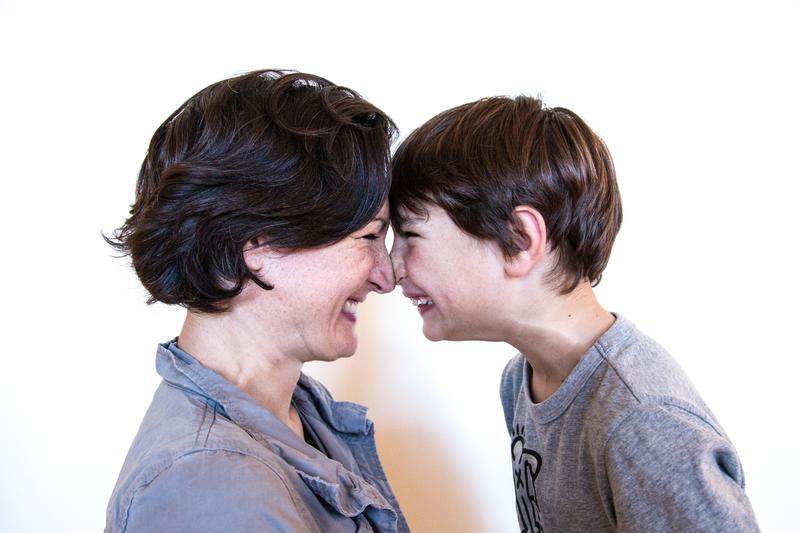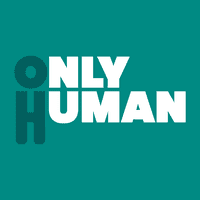MARY HARRIS: “You are a terrible listener.” Has anyone ever told you that before? We’ve all heard it at some point. Often, from the very people who know us the best.
MH: Am I a good listener? (long pause, laughter)
This is me, talking to my husband, Mark. And, yeah, he’s pausing this long before answering.
MARK: It depends? (laughter)
But we are going to change all that. For you. For me. For… Mark.
This is Only Human from WNYC. I’m Mary Harris. And this week, we’re helping you become a better listener, with our Listen Up! Bootcamp. Everyday this week we’ll have a new podcast and a challenge for you, each focused on a different aspect of listening. And it all starts today.
One more thing, there’s a little bit of swearing in this episode.
Here’s the good news: if you are a terrible listener, it might not be completely your fault. It turns out our brains can process information really fast - 400 words a minute. But most of us only speak at 125 words a minute. Which means, when people are talking to us, our minds are constantly searching around for something new to pay attention to. That’s why we called in an expert to help us figure out how to listen better.
MH: So I want to make sure I’m pronouncing your name right. Is it Beatrice de Gelder?
BdG: That’s perfect.
MH: Should I call you professor or doctor?
BdG: Professor de Gelder is perfectly alright. I’ve been that for quite a while, so…
Professor Beatrice de Gelder studies emotion and cognition at Maastricht University in the Netherlands.
BdG: Listening is a whole lot more complicated than knowing language. What happens in your brain when you’re listening happens at very many levels, in many different areas of the brain. We used to think of the auditory cortex... but the whole brain has to contribute to coming up with a decoding of the message.
Makes sense, right? When you’re listening, you’re not just hearing. You have to read gestures. Tone. Facial expressions. De Gelder says, without all that context, meaning can become ambiguous. Think about the phrase “oh my dear.”
BdG: You can say “oh my dear” when you’re very irritated by somebody. You can say “oh my dear” when you’re impatient. You can occasionally say “oh my dear” when you care about somebody. The words are the same. Understanding them is like a whole different ballgame.
So if we want to be better listeners, we have to start by talking to each other in person. The more we text, tweet and email, the less likely we are to understand each other.
And that’s brings us to our Day One Challenge. We’re calling it “Face to Face.”
FRANCHESCA RAMSEY: I heard this really great quote that is: the beautiful thing about the internet is everyone has a voice, and the terrible thing about the internet is that everyone has a voice, and it just sums up my life (laughter)
That’s Franchesca Ramsey. She makes comedy videos about race and pop culture. She’s probably best known for one she made that went viral a few years back. It’s called “Shit White Girls Say to Black Girls.”
Video: My best friend was black. I mean, she’s still black, but we’re not really friends anymore. Oh my god, I’m practically black! Twinsies…
Franchesca Ramsey has mastered the art of getting us to focus on serious subjects by making us laugh. But when it’s her turn to listen?
FR: I mean, I make internet videos, hello! I love seeing and hearing myself talk, clearly, so actually listening to what someone else has to say, that’s not something we’re really used to or good at.
MH: Do you feel like you’re getting better at it?
FR: For me, I’ve made an effort to be better at it bc I’ve asked my audience to be better at it. I feel it would be hypocritical for me to encourage my audience to be more conscious about the way they speak and behave if I don’t try to do the same myself.
MH: And maybe we're getting worse at it since we’re online all the time?
FR: Absolutely. Especially because social media’s all like, here’s what I’m doing, here’s what I’m thinking, here’s what I’m eating, here’s where I’m walking, here’s what I’m wearing! Like every single thing online is about me, me, me… rather than an actual conversation.
But getting offline to have those conversations can be hard.
FR: I know the thing that I struggle with the most is unplugging, especially because my work is online and so much entertainment and leisure is online so it’s hard to balance the two. But someone said to me, if the end of the world happens, you're not going to get an email about it. [laughter] and I was like, that’ so true!
MARY: So today, if someone emails, texts or tweets at you with something important, give call them and have a conversation. Or better yet, talk to them in person.
See how many offline exchanges you can have in one day. Let us know how it goes! Give us a call at (803) 820-WNYC. Or you can send a voice memo to onlyhuman@wnyc.org
Tomorrow morning we’ll be back with Day 2 of Listen Up — when an actor from the musical Hamilton shows us how reading body language can help us understand people.
I’m Mary Harris, and this is Only Human.


